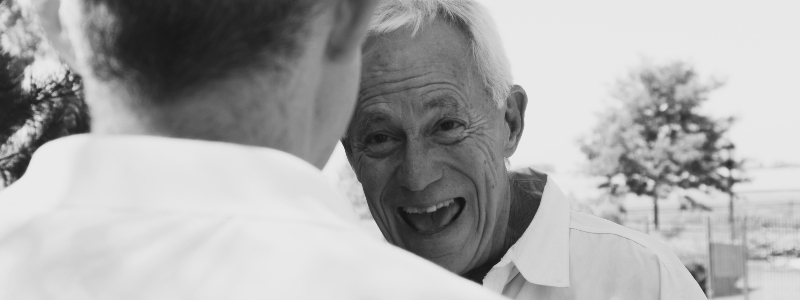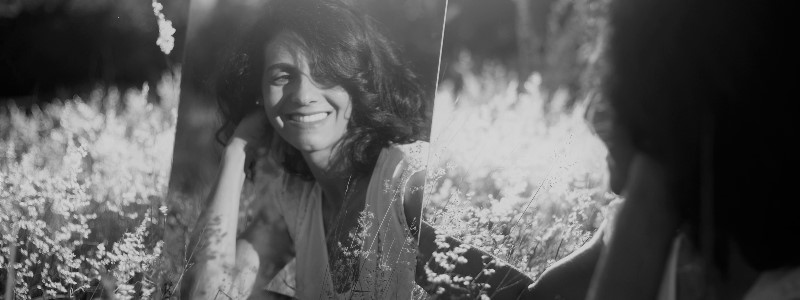Has anyone ever told you to act your age? You might have a memory of an irritable parent, partner or friend telling you so. I certainly remember being scolded this way on occasion. It’s a setting where one person urges another to be more ‘grown up’ than they appear.
It’s always seemed an interesting expression to me, as it begs the question of what it means to be a ‘grown up’. But is there a commonly understood way in which we progress from infancy to old age, and is there a ‘right’ way for us to grow up?
Life and stages of personal growth
One way of approaching these questions is to think about our lives from birth to death as a series of developmental stages, each with a central challenge or crisis as to how we can truly be ourselves in the world and in relationship with others. The influential psychoanalyst Eric Erikson, in his seminal work Childhood and Society, proposed there were eight such stages of human life.
Growing up to ten years old
Erikson saw the first stage of our infancy up to one year old as a crisis between trust versus mistrust in our environment. Infants experiencing good enough consistently predictable caregiving were likely to have higher trust in the world than those experiencing the opposite. In that sense our first challenge of growing up is shaped by the existential question: ‘Can I trust the world?’.
His second toddlerhood stage up to two years is characterised by a crisis between autonomy versus shame and the question: ‘Is it OK to be me?’. The third stage of early childhood is framed as the crisis between initiative versus guilt, posing: ‘Is it OK for me to behave?’. Fourthly, middle childhood is seen as a stage of negotiating the tension between our capacity for industry and feelings of inferiority, exploring the question: ‘Can I make it in the world?’.
Growing up to late adulthood
Adolescence, the fifth stage, pitches us in to a crisis of identity versus role confusion. As we reach puberty and acquire more independence in the world, we must answer the question: ‘Who am I and what can I be?’. Then as we move into early adulthood in our twenties and thirties, we can be seen as managing the tension between achieving intimacy with significant others versus isolation from others, as we ask: ‘Can I love?’.
Erikson’s seventh stage of middle adulthood from our mid-forties to mid-sixties is concerned with our being productive and creative, and establishing and guiding the next generation, leading to a crisis of our capacity for generativity versus our falling into isolation through a sense of personal stagnation, posing the question: ‘Can I make my life count?’.
Finally, we reach the eighth stage of our late adulthood from sixty-five onwards in which we face a crisis of evaluating our ego integrity versus a sense of personal despair. Erikson describes what he means by this integrity as ‘the acceptance of one’s one and only life … as something that had to be’, as opposed to experiencing despair, defined as our actively On Acting Our Age fearing death and feeling our time is ‘too short for the attempt to start another life’. Thus, the final question of our lives becomes: ‘Is it OK to have been me?’
Crises and growth, and the uses of therapy
Whatever we think of Erikson’s model as an explanation of human growth and development, each of us can evaluate our own experiences in terms of its stages. We can certainly make a link between his first stage of trust versus mistrust with his contemporary, psychoanalyst John Bowlby, and his theory that the way we experience our earliest caregiving leads us to develop dominant styles of attachment in relationships that are either secure or variously insecure.
A striking feature of this developmental model of the personality is that Erikson situates most psychological growth crises as taking place in our childhood, a time when we have the least power over our environment alongside maximum vulnerability to neglect or harm.
Many people seek therapy at a time of crisis in their lives, and holding a sense of ‘stuckness’ in themselves. Erikson offers us a model for thinking about this stuckness in relation to our earlier developmental experiences. Whatever life challenges we are now facing as ‘grown ups’, working in therapy by focusing on our earliest experiences can uncover the possibility of unlocking an earlier developmental stage that has left us stuck with aspects of mistrust, shame or inferiority in our personalities.
And in terms of the model’s crisis stages of adulthood we can use therapy to consider how the existential questions of our being able to love, to create, to contribute and to make meaning of our lives can help us resolve our stuckness and even move us towards a deeper acceptance of our ‘one and only life’.
Chris Horton is a registered member of the British Association for Counselling & Psychotherapy (BACP) and a psychotherapeutic counsellor with experience in a diverse range of occupational settings.
Further reading by Chris Horton






